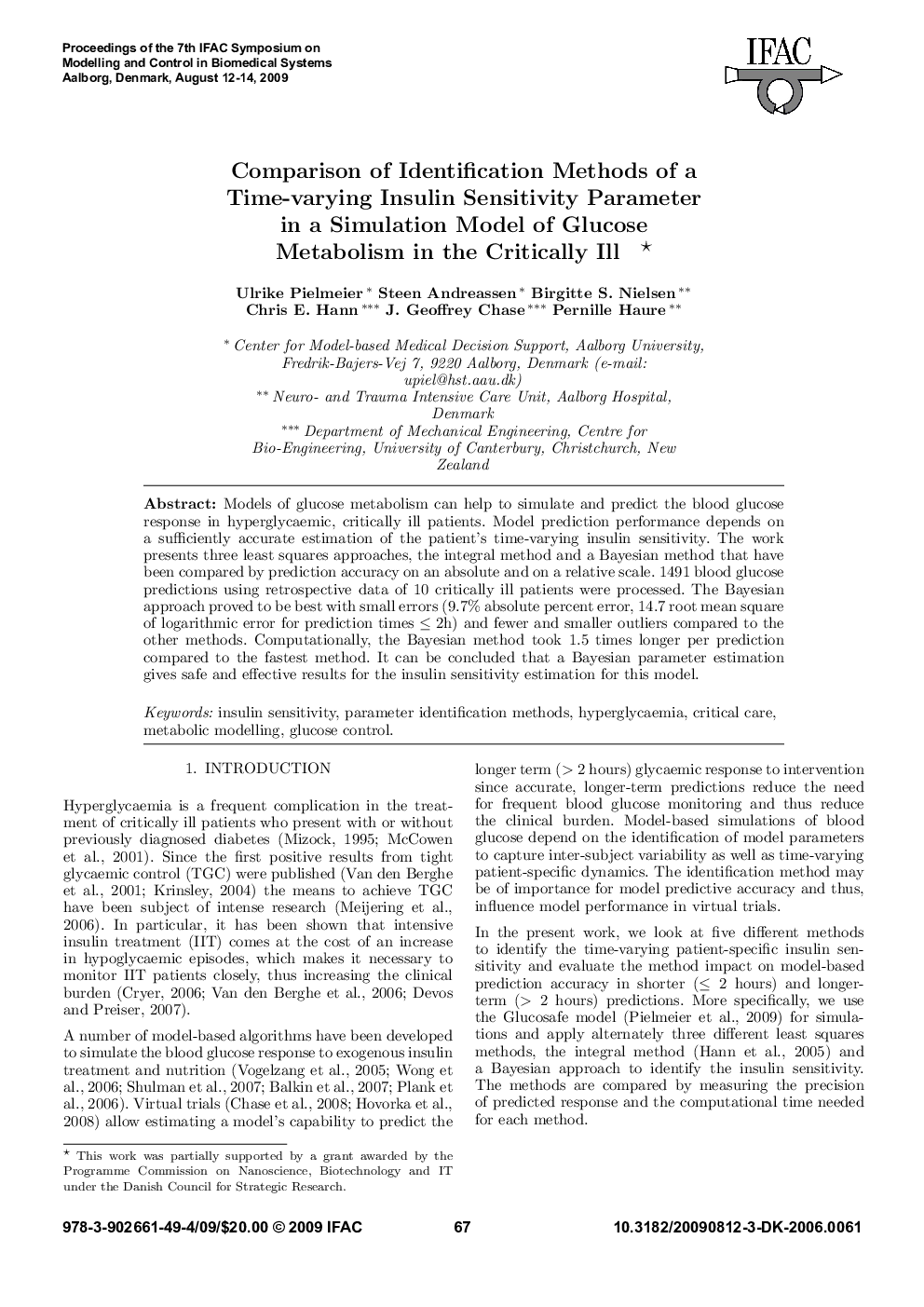| Article ID | Journal | Published Year | Pages | File Type |
|---|---|---|---|---|
| 719437 | IFAC Proceedings Volumes | 2009 | 6 Pages |
Models of glucose metabolism can help to simulate and predict the blood glucose response in hyperglycaemic, critically ill patients. Model prediction performance depends on a sufficiently accurate estimation of the patient's time-varying insulin sensitivity. The work presents three least squares approaches, the integral method and a Bayesian method that have been compared by prediction accuracy on an absolute and on a relative scale. 1491 blood glucose predictions using retrospective data of 10 critically ill patients were processed. The Bayesian approach proved to be best with small errors (9.7% absolute percent error, 14.7 root mean square of logarithmic error for prediction times ≤ 2h) and fewer and smaller outliers compared to the other methods. Computationally, the Bayesian method took 1.5 times longer per prediction compared to the fastest method. It can be concluded that a Bayesian parameter estimation gives safe and effective results for the insulin sensitivity estimation for this model.
